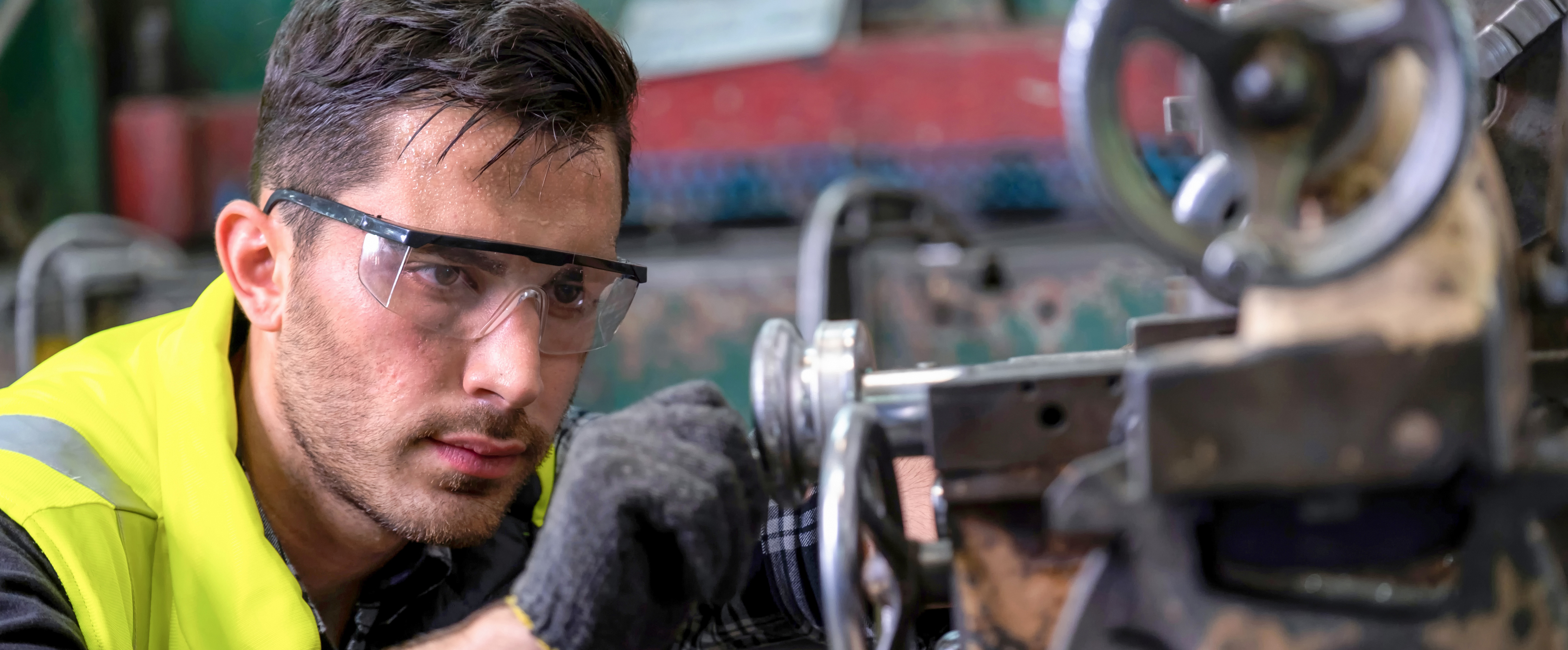Programme overview
Dive into the diverse and fast-growing world of mechanical engineering by studying for the New Zealand Certificate in Mechanical Engineering (Level 3).
This highly practical course will prepare you for work, an apprenticeship, or further education in an endless list of industries:
- Aerospace
- Biomedical
- Civil engineering
- Construction
- Consumer electronics
- Energy
- Environmental
- Fabrication
- Manufacturing
- Marine
- Vehicles
- Robotics and more!
Who is this programme for?
This pre-trade certificate lets you explore different areas of mechanical engineering while building the core knowledge and practical skills to work as an operator or trade assistant within your chosen discipline.
If you’re already working in the industry, this certificate will help you further develop your knowledge, refine your skills, and ultimately improve your career prospects.
What you’ll learn:
Alongside completing a defined range of tasks that are the foundation of any job in mechanical engineering, our teaching team will challenge you to experiment and innovate. The sky’s the limit in this industry – and your invention might be the next breakthrough that forever changes our world.
Highlights
- Plenty of hands-on learning in our purpose-built trades building. You’ll spend lots of time on the shop floor in Mataaho, our dedicated trades training area with multiple workshop spaces and with the latest emulation and simulation technologies. Explore our facilities virtually
-
Work with cutting-edge machinery and systems, including Fusion 360 and Computer Numerical Control (CNC) machinery such as plasma cutters, lathes, and milling machines.
-
Tackle real-world challenges. Apply your knowledge and skills to real-world projects
-
Develop your portfolio showcasing your achievements and work, a great addition to your CV when applying for jobs.
>Move into work or continue studying.
>Once you’ve graduated, you can work in entry-level manufacturing, machining, and operation roles in the mechanical, construction, manufacturing, and fabrication industries. Alternatively, you may choose to continue studying in your chosen discipline
Funding your study
We have scholarships and fees-free options to help you maintain your ongoing course of study
Admission requirements
What you will need to study this programme.
Domestic students
International students
Academic requirements
As a part of this requirement, you must one of the below;
- All applicants must be at least 16 years of age when they begin their studies, and they should meet the country-specific admission requirement;
And English entry requirements;
- If English is not your first language, you will also need at least one of the following qualifications:
- Evidence of an IELTS (Academic) band score of at least 5 with no band score lower than 5
- University Entrance Literacy: 10 credits at Level 1 or above in English or Māori (5 in Reading, 5 in Writing); or
- Evidence of English language proficiency as outlined in the NZQA Rules on the Unitec English Language Requirements for International Students Web-page.
Don’t meet these Academic requirements?
- If you don’t meet the academic criteria, our Bridging Education Programmes can help you qualify. Apply online, and we’ll be in touch about your next steps.
- If you don’t meet the above criteria, special or discretionary admission may apply; your eligibility will be determined at the interview.
Courses and timetables
For more details on the courses including timetables, please click on the course names below.
| Courses | Credits | Aim |
|---|---|---|
| Engineering Health and Safety (MECH3028TP) | 10.0 credits (0.083 EFTS) | This course aims to develop akonga knowledge and skills in relevant health and safety legislation so they can apply appropriate work safety practices and procedures when carrying out tasks in an engineering environment. |
| Engineering Calculations and Drawing (MECH3029TP) | 15.0 credits (0.125 EFTS) | The aim of this course is to develop basic trade related numeracy, literacy and graphic visualisation skills to produce engineering tasks. |
| Mechanical Engineering Workshop Skills (MECH3030TP) | 15.0 credits (0.125 EFTS) | The aim of this course is to develop basic engineering workshop skills in using simple measurement, lifting and moving loads and materials as well as develop knowledge of common engineering materials |
| Engineering Machining (MECH3031TP) | 20.0 credits (0.167 EFTS) | The aim of this course is to develop skills in basic machining and workshop practices including applying appropriate engineering work practices when using measuring equipment to perform mechanical machining operations. |
| Engineering Fabrication (MECH3032TP) | 20.0 credits (0.167 EFTS) | The aim of this course is to develop basic fabrication skills and techniques as well as develop good working practices when using engineering power tools. |
| Welding (MECH3033TP) | 20.0 credits (0.167 EFTS) | The aim of this course is to develop and apply basic welding principles and skills as well as health and safety processes when welding materials. |
| Mechanical Engineering Processes and Quality (MECH3034TP) | 10.0 credits (0.083 EFTS) | The aim of this course is to develop akonga knowledge of effective and efficient processes as they take responsibility for their own work in the carrying out basic engineering tasks. |
| Mechanical Engineering Communication (MECH3046TP) | 10.0 credits (0.083 EFTS) | The aim of this course is to consistently apply effective communication techniques by participating in a team environment within an engineering workshop. |



